Simon Hadlington meets some of the chemists who are bringing their scientific knowledge into the political realm
Science and politics are intimately entwined, and chemistry's roots have particularly far-reaching entanglements. In research, chemists aim to provide solutions to issues of global concern, including energy supply and food security, and the chemicals industry has an immense economic, social and environmental impact throughout the world. Meanwhile, as with all scientific research, academic chemistry makes demands on the public purse.
So chemists - indeed all scientists - should be aware of the importance of politics to science. Just as politicians should understand how science and scientists work.
While most chemists may take a passing interest in the world of politics, a few have developed their interest and enthusiasm into a career. And the sphere of politics, policy-making and lobbying is another realm where knowledge of science can be put to good use.
The MP
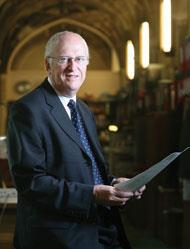
Brian Iddon made a decisive and extreme move from science and into politics - resigning as an academic chemist to become a fully fledged elected member of the UK parliament.
Two years after completing a PhD from the University of Hull in 1964, Iddon joined the rapidly expanding Salford University as a lecturer, rising to the rank of reader in organic chemistry before he resigned 31 years later after he was elected as a Member of Parliament.
'I always had an interest in politics,' Iddon says. 'One of my earliest memories is of cycling around our village putting up election posters for my father who was standing for the parish council.'
In 1972 Iddon joined the Labour party in Bolton and began to take an active interest in housing issues. He was persuaded to stand for the local council and, in 1977, won a by-election in a strongly Conservative ward. He became chairman of the council's housing committee and, in 1994, was selected to fight the parliamentary seat of Bolton South East, which he won in 1997.
'My main interest when I came to Parliament was to fight for more resources for housing for Bolton,' he says. 'But science and technology has taken over my life at Westminster.'
Iddon's scientific expertise has been put to good use. He is chairman of the all party group on the chemical industry, chairman of the misuse of drugs group and, until it was recently superseded, was a member of the influential science and technology select committee. He has also been parliamentary adviser to the RSC.
'There are very few scientists in parliament compared with the number of MPs who are lawyers or teachers,' Iddon says. 'But the science and technology committee has had a big impact and in the last few years we have earned ourselves a high reputation -some of our reports have been seminal. For example we investigated cancer research and showed that the government was putting far less money into cancer research than charities were. Also we showed that science, at a low but important level, can play a real part in international development - we persuaded the Department for International Development to appoint a real scientist, rather than a social scientist, as its chief scientific adviser, and we were responsible for the appointment of scientific advisers to every department of state except the Treasury.'
The preponderance of non-scientists in parliament made itself clear during recent debates on the future of stem cell research. 'One or two of us argued for stem cell research to be permitted, which might not have happened if it weren't for politicians like us who have a deeper understanding of the science in this field,' Iddon says. 'We would be approached by non-scientist colleagues asking "what is a stem cell?" and we spent a lot of time explaining the importance of this field of research.'
Iddon will be retiring as an MP at the next general election, and laments the lack of scientists in Westminster. 'Is it important to have scientists in parliament? Yes, I am absolutely convinced about that, and without scientists it is to the detriment of science and to the detriment of parliament and ultimately to the detriment of our society.'
The European lobbyist
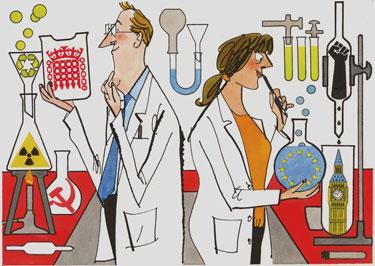
Becoming a fully fledged elected representative to a country's legislature is not the only way to have an influence on society, as Marianne Schwarz da Silva discovered early in her career. After completing her PhD in natural product synthesis at Imperial College London, UK, in 2004, Schwarz da Silva felt the pull of science policy. 'While I had always been keen on science, I found I had started to develop a real interest in science policy - who decides what science is worth pursuing and how much money people should get.'
She took an internship with the European Commission in what was then the NEST office - New and Emerging Science and Technology - a unit dedicated to assessing 'blue skies' research proposals. After six months Schwarz da Silva joined the Brussels-based lobbying organisation the European Platform of Women Scientists, EPWS, which aims to raise the visibility of women working in science. 'We like to think of ourselves as a structural link between the scientific community and European institutions,' Schwarz da Silva says. 'EPWS was set up because there was need for the scientific community to represent women scientists in the European Commission and its institutions.
'Women tend to encounter barriers that men don't. For example the concept of "excellence" is widely used as a criterion for funding grants and promotion. This is often decided on publication history, and if a woman takes two years out to have children, this is two years out of publication and she is immediately at a disadvantage. So one thing we want to do is change the definition of excellence in this context.'
There are other areas of discrimination - the 'glass ceiling' still exists, says Schwarz da Silva, whereby women, a higher proportion of whom have first degrees than men, occupy only nine per cent of professorial chairs in EU universities.
Schwarz da Silva, who has just left EPWS to take a position with a scientific consultancy, worked largely in increasing membership and improving networking between women scientists. Despite not working directly at the lab bench, Schwarz da Silva believes her scientific training was been crucial to her work with EPWS.
'It's important to have experienced the kinds of issues [I am] seeking to address,' she says. 'Scientific training is also important for the way you approach problems analytically, and the way you can communicate the essence of a problem. A PhD in chemistry is good training in teaching you how to work hard, persist and to be patient.'
The environmental campaigner
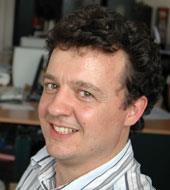
Michael Warhurst's career has taken him from a doctorate at the University of Glasgow on the breakdown of chemicals by bacteria, which he completed in 1993, to campaigning environmentalist. Warhurst is currently senior waste and resources campaigner at Friends of the Earth in the UK.
Warhurst's long-standing interest in environmental matters was given a decisive boost when he studied for a master's degree in Edinburgh following his PhD. The topic was the hormone-disrupting behaviour of alkylphenols. 'I had the chance to get my report published academically, but I wanted it to have a greater policy impact because I came to the conclusion that the use of these chemicals needed to be restricted,' Warhurst says. 'So I got it published by Friends of the Earth.'
Warhurst then worked for a couple of years as a postdoc, researching the production of activated carbon from tropical vegetation. In 1997 Warhurst quit the lab to join Friends of the Earth to work on pollution and chemicals campaigns, which required intensive study of the literature and the production of a number of reports. He now heads FoE's waste and resources campaign.
Warhurst says one of the reasons he left laboratory work was his frustration at the way academic scientists are 'encouraged effectively to get into a rut for the rest of your scientific career - you are expected to define your specialism early and spend your life on it. Frankly I did not want to do that'.
He also became increasingly aware of the political and economic interests that influence science and science policy. 'For example, on hormone-disrupting chemicals a number of scientists had produced evidence over the years to show that these chemicals had a hormone-mimicking effect. On the other side a whole load of research was presented by the chemical industry to show that there was no problem. I realised the issue was not one of research, but the regulatory system which decides the balance of evidence necessary.
'I also became aware of the extent to which economic interest affects regulation. So if you look at the case of asbestos, those countries with no real economic interest were very quick to outlaw it; those that mined it fought hard to keep it.'
Warhurst says his own scientific background is key to his work. 'A lot of policy people don't have a science background. I wouldn't have been able to do my job in the way I have if I did not have my [chemistry] background. For example I produced a comprehensive report on the potential impacts of the biomedical revolution, and no way could I have done that without being a scientist.'
He believes strongly that scientists should involve themselves more in policy, but that there is little encouragement for them to do so. 'If you are a research scientist in the UK, all the incentives of the system are for you not to do this sort of work. The government has a lot of debates about getting independent scientific experts on committees, but there is little incentive - it will not be rewarded by the Research Assessment Exercise or the Teaching Quality Assurance [the criteria on which 'academic excellence' is assessed by the government].'
'It would definitely be useful to have more people in policy understanding science in a critical way,' he adds.
Building bridges
The RSC's Parliamentary Links Day, which will be held this year on 24 June, provides a direct connection between the scientific community and parliament. 'This is the biggest scientific event ever held in parliament, and it's about science as a whole, not just chemistry,' says Stephen Benn, parliamentary affairs officer for the RSC. Previous contributors have included the prime minister and senior and shadow cabinet ministers.
The longstanding RSC Parliamentary Link Scheme also offers a point of contact between an MP and a member of the RSC in their constituency, to whom the MP can turn for scientific advice and assistance.
In its MP-Scientist Pairing Scheme, the UK's Royal Society aims to improve politicians' understanding of how science works, and scientists' understanding of the political process. Research scientists spend a week in Westminster shadowing an MP, after which the MP spends a week in the lab with the scientist.
Last year the European Parliament ran a similar scheme with scientists and MEPs. Jacqueline Cole, who researches the molecular properties of optoelectronic materials at the University of Cambridge, was one of the participants. 'To capitalise on the possibilities presented by science, scientists and policy makers need to talk to each other. This scheme helps to make that a reality,' she says.
Volker ter Meulen, chair of the European Academies Science Advisory Council, says, 'Raising the profile of science within the European Parliament is vital, as science is central to more and more major policy issues.'
The policy director
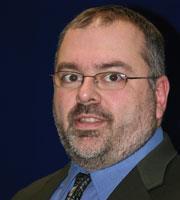
Across the Atlantic in the US, meanwhile, Ray Garant has forged a successful career at the interface of science and politics as assistant director of public policy for the American Chemical Society (ACS). Garant's responsibilities include developing policy on innovation, science funding and the use of science in environmental decision-making.
After an undergraduate degree in inorganic chemistry and three years' research towards a PhD, Garant says he 'kind of hit the wall. I spent a lot of time soul-searching and decided I wanted to do something else.'
The 'something else' turned out to be a one-year ACS congressional science policy fellowship - a scheme run by the American Association for the Advancement of Science (AAAS), where fellows are typically based in the office of an elected politician on Capitol Hill. 'By the time I had completed the fellowship I was absolutely hooked.'
After the fellowship Garant returned to the ACS to run its Science and the Congress project, which aims to increase the understanding of science and technology by congress, and generally to smooth the interaction between science and policy. 'Originally it was going to be a six-month job,' Garant says. '12 years on and I'm still here.'
Garant's team works to push the ACS's message out to the wider world and to wield influence. 'Since 1995 the Science and Congress programme has staged more than 120 events on Capitol Hill,' Garant says. 'We have developed an impressive reputation and a lot of credibility as a society that is a source of impartial and unbiased information on science and technology.' This year the programme will be extended to target individual state governments to influence policy at the state level.
Overall, Garant is encouraged by what he sees as significant improvements in the way scientists and politicians engage with each other. 'There is of course always room for more scientists to become involved and to improve their understanding of the languages, the cadences, and the culture of the policy world. But I would not say there is not enough [engagement] - I am not unhappy with what is there.'
And despite the fact that he doesn't call upon his grounding in inorganic synthesis directly, he says, 'understanding of the research process, the scientific method, different issues of science, statistics and mathematics - all these things have proved very valuable.'

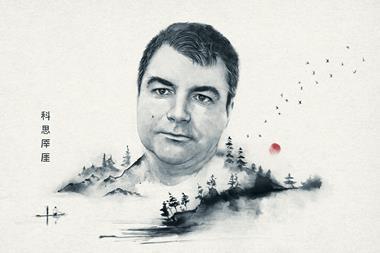










1 Reader's comment